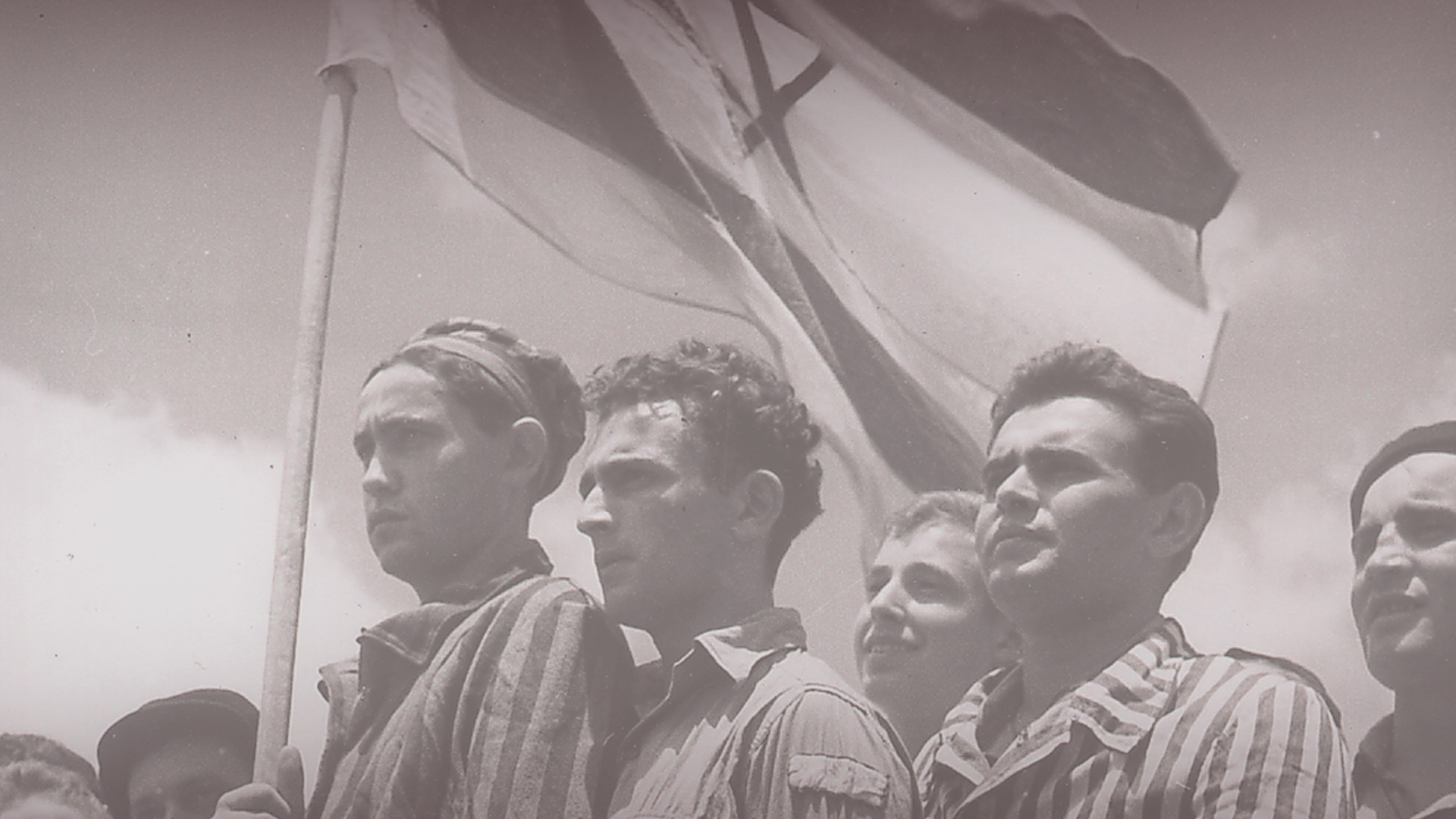
The Long Way Home follows the years in the aftermath of the Holocaust in which Jews are displaced and have nowhere else to go.
The film starts with a quote from Exodus 13:
“When Pharaoh let the people go, G-d did not lead them by way of the land of the Philistines, although that was near…But G-d led the people round by way of the wilderness…”
Per the film’s on-screen text, the voices are taken from “memoirs, letters, diaries, and the oral histories of men and women who lived through the tumultuous events of 1945-1948.” There are a number of people that appear during sit-down interviews.
In the immediate aftermath of WWII, Jews were being held in Displaced Persons camps. Many living in poverty while antisemitism was terrible. Conditions were so horrific for Holocaust survivors. In fact, one makes the comment that it was easier to be a captured German than be a liberated Jew. This just speaks to how bad conditions were in the camps. Filmmaker Mark Jonathan Harris focuses on a few factors. One, the Jewish leaders in Mandatory Palestine. Two, the Jews living in Displaced Persons camps. Three, the response from both American and British governments. The end result of everything would see Theodore Herzl’s dream come true. A Jewish state at least. Please watch Antisemitism in order to see the origins of this dream.
The Jewish Agency requested that the British grant 100,000 immigration permits to Jewish Holocaust survivors. American attorney Earl G. Harrison’s would send a report to President Truman after touring the camps. This report would make the recommendation to allow that 100,000 refugees resettle in Mandatory Palestine. Truman subsequently did his best to intervene and wrote off to British PM Clement Attlee:
On the basis of this and other information which has come to me I concur in the belief that no other single matter is so important for those who have known the horrors of concentration camps for over a decade as is the future of immigration possibilities into Palestine.
During this point in history, Britain was in charge of then-British Mandate of Palestine and they controlled who came into the country. The U.S. military received the blame for the conditions at the Displaced Persons camps in Europe. To this end, General Dwight D. Eisenhower immediately responded but still fell short in Harrison’s eyes. For Harrison, sending Jews “from one camp to another can hardly be said to be liberation.” Read that again, please! Labour Party leader Clement Attlee had succeeded Winston Churchill as the prime minister. Attlee and company didn’t respond well and basically blamed the Jews for the report’s conclusion.
British finances had played a role in the matter. It was too expensive for Britain to handle. As such, they would turn things over to the United Nations. With the way that Britain was running things, the future did not bold well for Jews. They ran a total of twelve internment camps for Jews in Cypress.
The UN would hold a vote for the UN partition plan. It is one of the earliest plans calling for a two-state solution. You probably know how things went down. The UN partition plan called for separate Jewish and Arab states but the Arab leaders rejected it. They started a campaign of violence and attacked Jewish settlements and civilians. All the while, the British government wouldn’t intervene. While this is happening, Holocaust survivors in Europe were just waiting for the gates to open. May 14, 1948 would mark the last day of the British mandate with the State of Israel immediately declaring its independence. If we had Israel in 1939, maybe the six million Jews would have been able to live. The tragedy of the Holocaust would have been lessened had there been a safe haven for Jews.
Where Exodus tells a fictional account of Israel’s founding, The Long Way Home is as detailed as it can be in just under two hours. If you want to learn about how WWII led to the birth of the State of Israel, you cannot go wrong with this film.
DIRECTOR/SCREENWRITER: Mark Jonathan Harris
NARRATOR: Morgan Freeman
FEATURING: Ed Asner, Sean Astin, Martin Landau, Miriam Margolyes, David Paymer, Nina Seimaszko, Helen Slater, Michael York
Seventh Arts Releasing released The Long Way Home in theaters on September 19, 1997.
Please subscribe to Solzy at the Movies on Substack.



